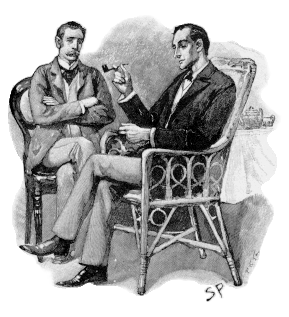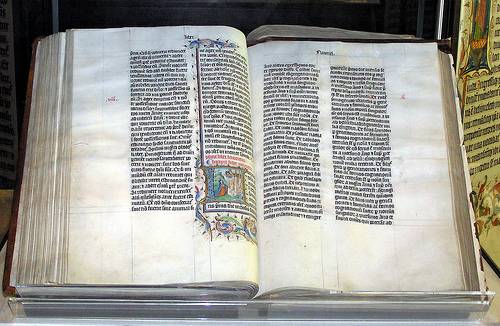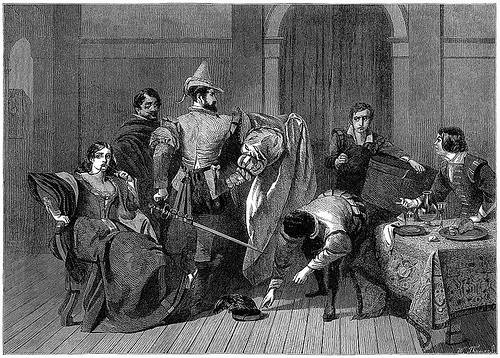Here’s a paragraph from Robinson Crusoe. It contains a remarkable error — can you spot it?
A little after noon, I found the sea very calm, and the tide ebbed so far out, that I could come within a quarter of a mile of the ship; and here I found a fresh renewing of my grief: for I saw evidently, that if we had kept on board, we had been all safe–that is to say, we had all got safe on shore, and I had not been so miserable as to be left entirely destitute of all comfort and company, as I now was. This forced tears from my eyes again; but as there was little relief in that, I resolved, if possible, to get to the ship–so I pulled off my clothes, for the weather was hot to extremity, and took the water. But when I came to the ship, my difficulty was still greater to know how to get on board; for, as she lay aground and high out of the water, there was nothing within my reach to lay hold of. I swam round her twice, and the second time I spied a small piece of rope, which I wondered I did not see at first, hang down by the fore-chains, so low as that with great difficulty I got hold of it, and, by the help of that rope, got up into the forecastle of the ship. Here I found that the ship was bulged, and had a great deal of water in her hold, but that she lay so on the side of a bank of hard sand, or rather earth, and her stern lay lifted up upon the bank, and her head low almost to the water: by this means all her quarter was free, and all that was in that part was dry; for you may be sure my first work was to search and to see what was spoiled, and what was free, and first I found that all the ship’s provisions were dry and untouched by the water: and being very well disposed to eat, I went to the bread-room and filled my pockets with biscuit, and ate it as I went about other things, for I had no time to lose. I also found some rum in the great cabin, of which I took a large dram, and which I had indeed need enough of to spirit me for what was before me. Now I wanted nothing but a boat, to furnish myself with many things which I foresaw would be very necessary to me.
(He does explain later that “I found the tide begin to flow, though very calm; and I had the mortification to see my coat, shirt, and waistcoat, which I had left on the shore, upon the sand, swim away. As for my breeches, which were only linen, and open-kneed, I swam on board in them and my stockings.”)



